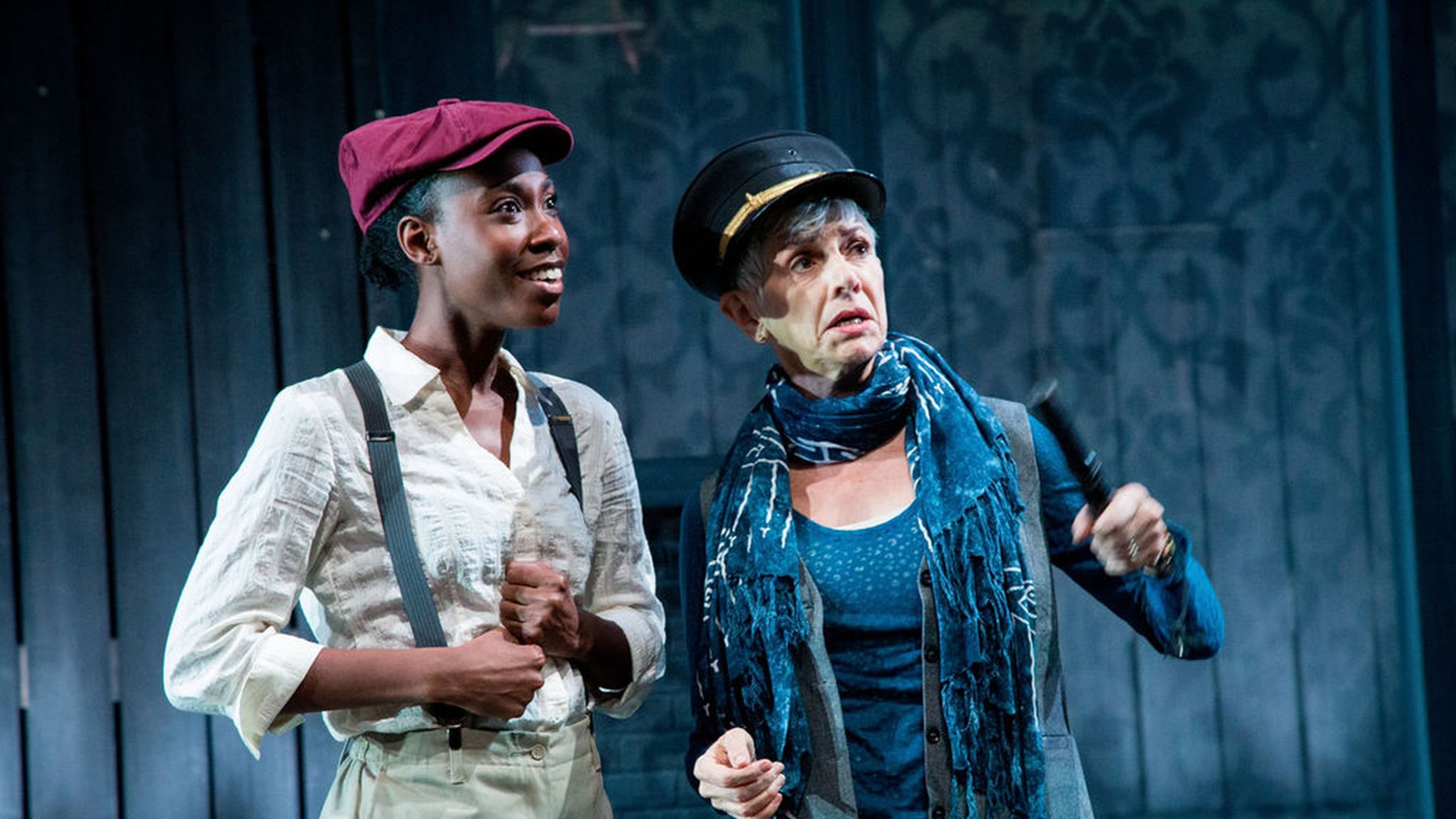Review: ‘Our Town’ slowly pays off

In “Our Town,” nothing much ever changes. People fall in love, get married, have children, eventually die. And as Emily discovers near the end of the play: “It goes so fast. We don’t have time to look at one another.”
Thornton Wilder’s elegiac 1938 play offers a glimpse of eternity in the most ordinary circumstances. In the fictional Grover’s Corner, New Hampshire, what appears to be a Currier and Ives-ready scene is actually a blueprint for the cosmos: It’s real life, followed by the afterlife.
For Theatrical Outfit, where artistic director Tom Key is taking his leave after 25 years, "Our Town" is a splendid way to consider the past while contemplating the future. On Friday morning, the playhouse announced that 38-year-old Matt Torney, from Studio Theatre in Washington, D.C., will succeed Key. On Friday night, it opened Key's final season with "Our Town," performed by the same 10 actors who will appear in "The Laramie Project," the second half of an ambitious repertory project that situates the plays side-by-side like bookends.
Directed by David Hyatt Crowe, Wilder’s windswept, Mount Rushmore of a play is nimbly performed, beautifully designed and noble to the core. But until the famous final act, when the newly dead Emily (Maggie Birgel) gets to revisit the world of the living, the story feels plodding. And for all its detailed movement vocabulary, rather immobile, too.
MORE THINGS TO DO: Podcast: Everything you need to know about theater season in Atlanta
“Our Town” doesn’t have to read like a delicate museum piece, but in this case, it often does.
Wilder’s plot is a study in economy. George Gibbs (Shaun MacLean) and Emily grow up in such close proximity that they can see one other from their bedroom windows. In Wilder’s minimalist, prop-free vision of his revolutionary drama, this means they stand on ladders, speaking back and forth to one another while they do their homework.
Throughout the story, their parents (Allan Edwards and Maria Rodriguez-Sager as Dr. and Mrs. Gibbs; Jayson Warner Smith and Stacy Melich as Mr. and Mrs. Webb) go about life’s daily rhythms. The milk and the newspaper are delivered in the morning; the families eat their breakfast and go off to school and work. A stage manager (Mary Lynn Owen) narrates the tale, stopping and starting the action as necessary to provide commentary.
To my mind, Owen never quite soars as the stage manager; it’s in other, smaller parts that her craft really shines. And in the domestic scenes, the miming is so ornate that it clutters space and distracts from the immediacy of the story. Isn’t it supposed to be the other way around?

While Rodriguez-Sager’s Mrs. Gibbs is lovely and pert (notice how she feeds the chickens), Melich’s Mrs. Webb is rather dour. Smith is an actor whose less-is-more approach pays off exponentially, as when his future son-in-law comes for breakfast on his wedding day.
As Simon Stimson, the town drunkard and a church choir director, Michael Hanson doesn’t quite convey the tragedy of his character, on earth or in the grave. But Asia Howard, in a variety of roles, including wedding guest Mrs. Soames, is a delight.
Whatever the production shortcomings, all is not lost. Though there’s a kind of quotidian poetry in the sparseness and simplicity of the tale, the ideas are profound.
Wilder is preoccupied with nothing less than the great paradox: the brevity of earthly existence; the eternity of the hereafter. "We all know that something is eternal," says the stage manager at the top of Act III. "And it ain't houses, and it ain't names, and it ain't earth, and it ain't even the stars. … There's something way down deep that's eternal about every human being."
The final bit echoes the myth of Orpheus and Eurydice. (Never look back.) It also recalls Wordsworth’s “Intimations of Immortality” ode, albeit from the point of view of the tomb rather than the womb. Like Matthew Shepard, whose real-life tragedy is the focus of “The Laramie Project,” Emily’s life is far briefer than it should be, but there are great wisdom and insight in her trajectory.
To be certain, Crowe and company deliver a solid take on a classic. It takes a minute, but it does pay off. By design, however, Theatrical Outfit’s “Our Town” and “Laramie Project” are meant to be co-meditations on a common theme. It would be a disservice for me to diss the one before seeing the other. Let’s hope the power and majesty of “Our Town” coalesce, come the second installment of this thoughtful pairing.
THEATER REVIEW
“Our Town”
7:30 p.m. Thursdays-Saturdays. 2:30 p.m. Saturdays-Sundays. Through Sept. 29. $15-$51. Theatrical Outfit, 84 Luckie St. NW, Atlanta. 678-528-1500, theatricaloutfit.org
Bottom line: A bit slow, but ultimately powerful.

